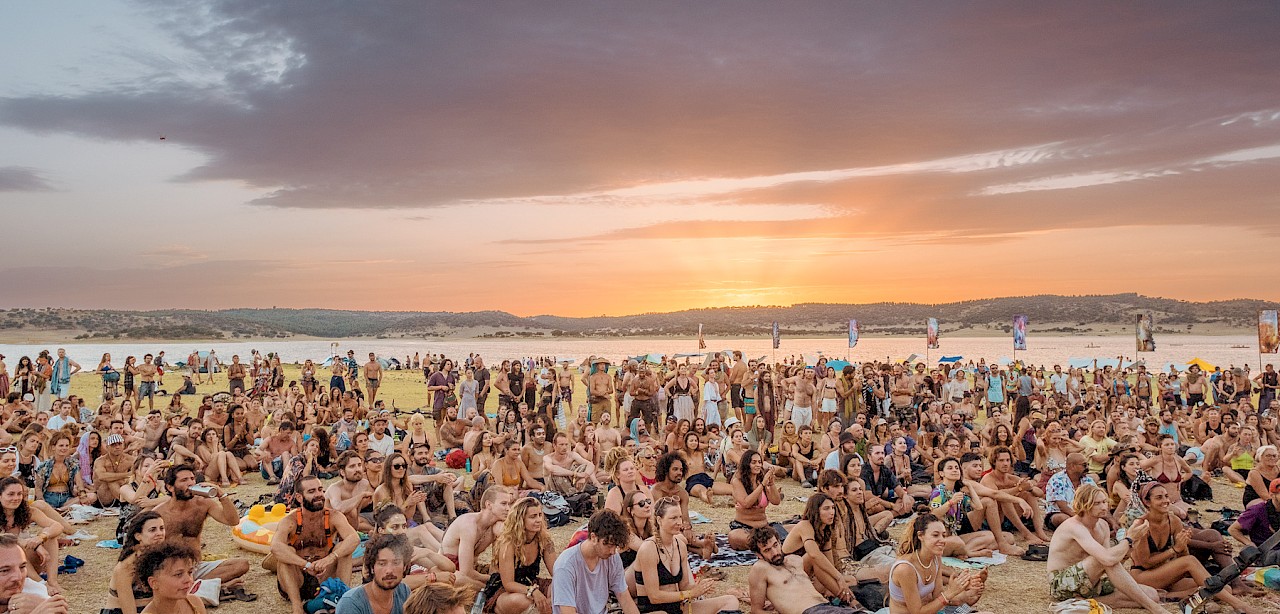
Food
Our view (on food) considers human health in symbiosis with the preservation of our ecosystem
When paradoxes override certainties, there are no simple solutions to the dilemma of food and how it is sourced. Markets for both mass manufactured food and organic food produce are huge — and the consumption choices we make are often associated with and limited by tradition, habits and identity.
What can we do about our choices when we are constantly bombarded by specialist media and fad-marketing campaigns?
We believe that each of us has the innate ability to make informed choices about what we decide to put into our bodies. We do not believe in prohibition, nor do we want to impose a belief system.
In our view, transformation arises from education and takes into consideration the planet and ecosystems on which we depend. This evidence guides our food policy and is also something that has the potential to foster change in our collective behaviour.
Worldwide, livestock accounts for between 14.5 and 18 per cent of human-induced greenhouse gas emissions. The use of land for growing food and forestry accounts for about a quarter of global greenhouse gas emissions.
By today's standards, the Earth will not be able to feed the nine billion population growth predicted between 2010 and 2050.
However, changes towards healthier plant-based diets could reduce Green House Gas emissions and other environmental impacts.
Furthermore, according to documented evidence, a change in behavioural food habits could also lead to the possibility of feeding up to 10 billion people.
Animals are fed hormones and antibiotics to prevent disease and maximise their growth and food output. They are confined to tiny spaces, often living in overcrowded, dirty and stressful premises. How can a living being exist under such conditions? How can it be a source of nutritious food if it lives on hormones, is constantly stressed out and in a contaminated environment? Data indicates that about 70 billion farm animals are now reared for food each year.
A total of 70 per cent planet's fresh water is used to irrigate land, while agriculture per se is a major cause of deforestation. In other words, the food system we depend on is practically 'responsible for 60 per cent of global biodiversity loss.'
The Brazilian José Graziano da Silva said that, in recent decades, the production of our food supply has focused mostly on rice, corn, wheat, soybeans and potatoes, comprising 80 per cent of our consumption. And that 'with 36,000 plants and animals that provide food, we cannot be focused on just these five.'
Boom Festival's position on food is based on how we as humans regard it, and how we, as an organisation, make it available to the global audience we serve.
Knowing the origin of the products we purchase and consume is fundamental to a conscious diet that benefits all.
Changing our habits is crucial to the wellbeing of the planet and the health of all its inhabitants. Knowing our own biology and what nutritional needs we must meet are essential to not only being alive but to living well too.
Food plays the crucial role in sustaining energy, supporting health and wellbeing while Boomers are in flow. A healthy diet will manifest itself from our inside to the outside: food is celebration!
The careful selection of the restaurants, at Boom, is for us a means to spark curiosity, raise consciousness and ultimately achieve the creation of new habits. Changing our nutrition is a way of exploring uncharted territory when it comes to the infinite capabilities of our mind, body and soul.
In 2022, 86 per cent of all food options at Boom were vegetarian and/or vegan. Although organic farming only represents 6.5 per cent of the total land used for agriculture in Portugal, all our efforts are put into sourcing food for Boom 2023 from local and organic producers.
Changes in the way we look at food can lead to healthier diets for animals and humans alike, while reducing the environmental impacts of the food system.
A wealth of evidence is attributed to scientific research, and as we witness, in the same vein, the depletion of our resources, the lack of respect towards other sentient beings, and begin to feel the urge to adopt a more conscious lifestyle. We, at Boom Festival, support this transition. Beyond fashion and rhetoric, there are limits that we are all crossing.
There is no planet B. So the question remains: are we ready to change our diet?


